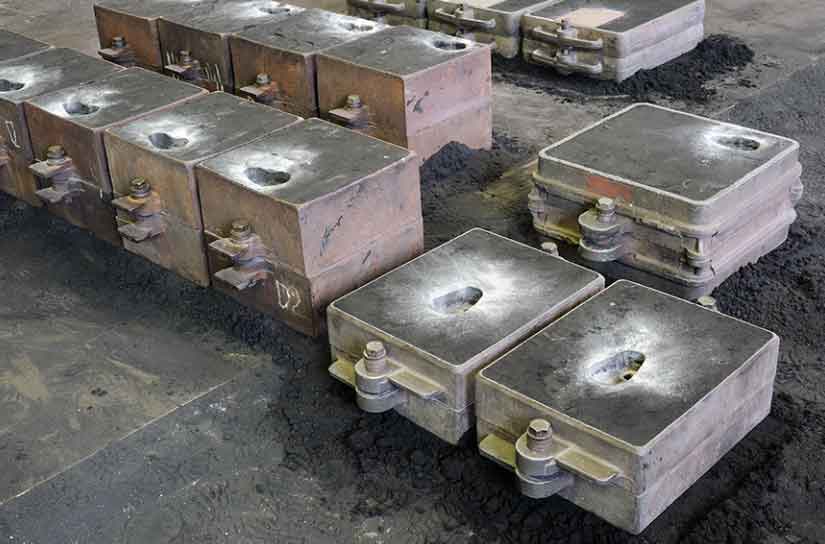
Resin sand casting offers several sustainable solutions for environmentally conscious production. As the demand for eco-friendly manufacturing practices increases, resin sand casting presents a viable option that minimizes environmental impact. Let’s explore how resin sand casting promotes sustainability in production processes:
1. Reduced Energy Consumption:
Resin sand casting requires lower energy consumption compared to other metal fabrication processes. The mold material used in resin sand casting has lower energy requirements for heating and cooling compared to processes like permanent mold casting or die casting. This reduction in energy consumption contributes to overall energy efficiency and helps lower greenhouse gas emissions.
2. Minimized Material Waste:
Resin sand casting significantly minimizes material waste. The expendable nature of the mold means that only a small amount of excess material, such as gating and risering systems, needs to be removed from the final casting. The remaining sand can be reclaimed and reused, reducing the need for new sand and minimizing waste generation. This efficient use of materials promotes sustainability and reduces landfill waste.
3. Eco-Friendly Binders:
Resin sand casting utilizes eco-friendly binders that have minimal environmental impact. Advanced resin formulations are designed to reduce emissions, improve collapsibility, and enhance sand reclamation. These binders are often formulated to be free of toxic compounds and are environmentally safe. As a result, resin sand casting minimizes air pollution and promotes a healthier work environment for foundry workers.
4. Recycling and Reclamation of Sand:
Resin sand casting allows for the recycling and reclamation of sand, reducing the need for new sand resources. Sand reclamation systems can efficiently separate the sand from the used mold material, removing contaminants and reclaiming the sand for future use. By implementing sand reclamation practices, resin sand casting reduces the demand for virgin sand, preserves natural resources, and minimizes the environmental impact of sand extraction.
5. Reduced Carbon Footprint:
The combination of lower energy consumption, minimized material waste, and eco-friendly binders results in a reduced carbon footprint for resin sand casting. By choosing resin sand casting over alternative metal fabrication processes, manufacturers can significantly decrease their overall environmental impact. This is especially beneficial for industries aiming to meet sustainability goals and reduce their carbon emissions.
6. Flexibility for Sustainable Materials:
Resin sand casting provides flexibility in material selection, allowing for the use of sustainable and recycled materials. Manufacturers can choose alloys made from recycled metals or materials with lower environmental impact, such as aluminum or magnesium. By incorporating sustainable materials into resin sand casting, the overall environmental footprint of the manufacturing process can be further reduced.
7. Longevity and Durability of Cast Components:
Resin sand casting produces high-quality cast components known for their longevity and durability. These components have a longer lifespan, reducing the need for frequent replacements and minimizing the environmental impact associated with manufacturing new parts. By producing durable metal components, resin sand casting contributes to a more sustainable and circular economy.
8. Compliance with Environmental Regulations:
Resin sand casting aligns with environmental regulations and guidelines. The use of eco-friendly binders and sand reclamation systems ensures compliance with regulations regarding air quality, waste management, and environmental protection. Manufacturers can meet sustainability targets and demonstrate their commitment to responsible production practices by incorporating resin sand casting into their operations.
Resin sand casting offers sustainable solutions for environmentally conscious production. Through reduced energy consumption, minimized material waste, eco-friendly binders, sand recycling, and the use of sustainable materials, resin sand casting contributes to a greener manufacturing process. By embracing resin sand casting, manufacturers can align their production practices with sustainable goals while maintaining high-quality metal component production.
